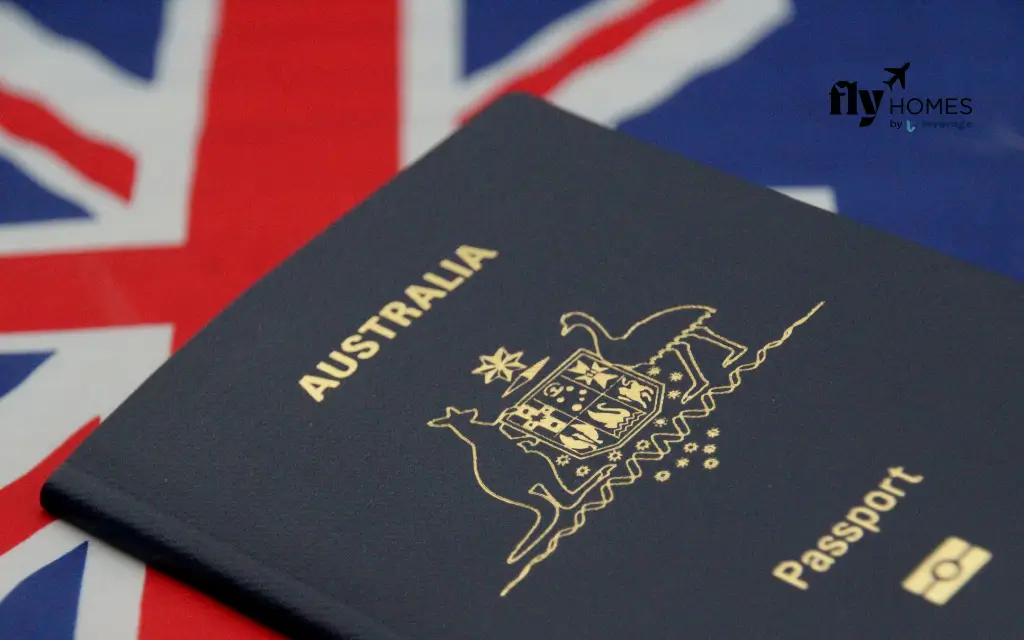Australian Travel Declaration: If you’re an Indian student planning to study in Australia, you’ll need to understand and follow certain travel requirements.
This blog post will guide you through the steps in filling out the Australian Travel Declaration, including the Incoming Passenger Card (IPC), visa process, rules about carrying items, biometric checks, and electronic devices to ensure a smooth transition.
This Blog Includes:
Key Documents Required for Australian Travel Declaration
You need to follow Australian travel requirements while entering the country, these are the documents you need to carry:
- Incoming Passenger Card (IPC)
- Valid passport
- Student visa
- Confirmation of Enrollment
- Overseas Health Cover (OSHC)
- Health examinations
What is the Incoming Passenger Card (IPC)?
The Incoming Passenger Card, often referred to as the IPC is a document that passengers arriving in Australia are required to complete. This card serves as a record of your personal details and travel intentions.
The Australian immigration authorities must verify your identity and understand your reasons for visiting Australia.
Also Read: Want to know more about Australia then refer to A Tale of Two Accents: British vs Australian Accent
Who Needs to Complete a Passenger Card?
All individuals arriving in Australia, regardless of their age, must complete an IPC. This includes both adults and children. Parents and guardians of children under 15 should complete the declaration on their behalf. Each child must have their declaration.
How to Fill Up the Passenger Card
Here are the steps to fill out the IPC:
- Front Side – Begin by filling out your surname or family name and giving names as they appear on your passport. Enter your flight number or the name of the ship you took to reach Australia. Indicate whether you intend to live in Australia for the next 12 months. Answer health-related questions truthfully. Declare any criminal convictions or tuberculosis.
- Back Side – Provide your contact details in Australia, including your phone number and email. Specify your emergency contact details. Answer questions about your occupation, nationality as shown on your passport, and date of birth. Finally, declare your purpose of visit, such as migration, visitor status, etc.
Note – Remember, providing false information can lead to legal consequences. Always ensure the information you provide is accurate.
Visa Process
Before departing for Australia, you’ll need to apply for a student visa. The visa process involves submitting your application, paying the associated fees, and attending an interview at the nearest Australian embassy or consulate.
Once approved, your visa will detail the length of your stay, the conditions under which you can remain in Australia, and any restrictions on your activities.
Further Read about Australia: Wanderlust in the West: 5 Incredible Things to Do in Western Australia
Rules About Carrying Items and Biometric Checks
Upon arrival in Australia, you’ll be subject to a biometric check involving taking your fingerprints and photograph. You’ll also need to go through customs, where you’ll need to declare any goods you’re bringing into the country.
Be aware of the rules regarding the importation of certain items before coming to your student housing in Australia, especially those considered potentially harmful or illegal substances.
Electronic Devices
While in Australia, you can bring in electronic devices like laptops, tablets, and smartphones. However, be careful of local laws and regulations regarding data privacy and encryption. Always keep your devices secure to prevent loss or damage.
FAQs
The IPC is a mandatory document for all individuals entering Australia, providing immigration authorities with essential information about your identity, travel intentions, and potential health risks.
Children under the age of 15 must have a separate IPC completed on their behalf by their parents or guardians. Each child travelling should have their declaration to record their details.
The IPC requires information such as your name, flight details, health-related questions, and contact information.
Before departing, Indian students need to apply for a student visa. This involves submitting an application, paying fees, and attending an interview at the nearest Australian embassy or consulate.
Yes, you can bring electronic devices, but be careful of local laws on data privacy and encryption. Keep your devices secure to prevent loss or damage.
Thank you for reading our blog. This blog is all about the Australian Travel Declaration. For booking the best accommodation abroad to start your study abroad experience you can contact Fly Homes at 1800572118.
Follow Us on Social Media




























